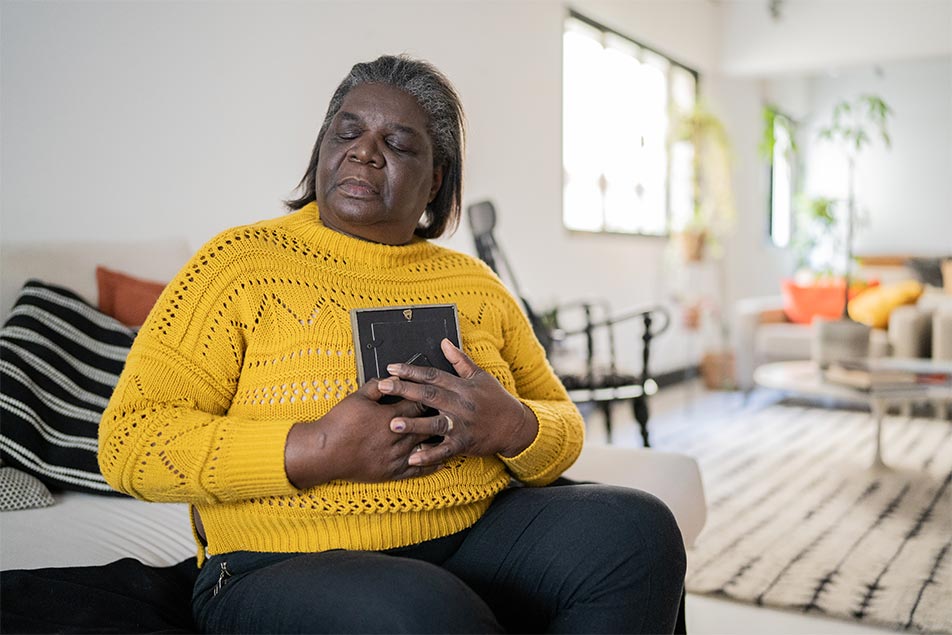
This post was written based on a recent appearance by Tim O’Sullivan, MA, chaplain, Parkview Health, on the television program PBS HealthLine.
A chaplain discusses the differences between grief and mourning and how to navigate the emotional waters of bereavement.
We all experience different types of loss throughout our lives. It could be the loss of a job or financial status, the end of a relationship, when a child moves away to college, or even the death of a loved one. Each scenario is a form of loss. Really, any significant change that occurs in our life, some semblance of grieving goes with it.
What are the stages of grief?
We've learned quite a bit about the grieving process over the last 50 years. Most studies haven’t changed a ton and still examine very similar stages or developmental areas of grief that include:
However, it’s important to note that people don’t necessarily grieve in that particular order or even go through all the stages. Grief is a highly individualized experience. That’s why we have to be careful when talking about the stages of grief, so we don’t look at them as a progression of phases we have to go through. The truth is some of us will experience every single stage while others may only experience one or two. Everyone’s path is different.
What’s the difference between grief and mourning?
Many people confuse the two, but grief and mourning are very different. Grief is the inward journey that someone goes through. It’s the memories we have of our loved one, our thoughts and feelings, the inner dialogue and emotions we aren’t expressing outwardly, and the sadness we carry with us. Whereas mourning is the active external expression of what we’re thinking and feeling. It could manifest as crying, frustration, anger or the anxiety that comes with losing someone we love.
How can someone cope with their grief?
You can begin by remembering that it is a process that requires work. It’s not something that you can stand by and allow to happen to you. You must be an active participant in your own journey. When it comes to bereavement, the most important thing you can do is realize you don’t have to do it alone. Don’t be afraid to ask for and accept help. Involving others in what you’re going through is a crucial part of grief, mourning and the bereavement process.
How long can a person’s grief last?
Honestly, there’s no time limit on grief. It doesn’t last forever, and it will get better. Yes, you will always miss your loved ones. That will never go away. But, with time, your grief becomes more manageable. It becomes something that you can incorporate into life instead of being overwhelmed or consumed by it. Doing so will help you move forward and live a meaningful life filled with hope for future days.
When should someone seek help for their grief?
You should seek additional help or treatment when grief disrupts your life. When you actively avoid or postpone your grief because it feels too busy or overwhelming, you never get around to feeling your feelings or addressing your pain. That’s when things can get complicated. That’s when it’s time to reach out or speak with someone. If you have a trusted spiritual leader, family member, friend, or support group, that’s a perfect place to start. However, if you need a little more help, it may be time to reach out to a mental health professional or even your physician. They can recommend resources or refer you to an individual counselor.
If you or someone you love is dealing with grief, know that help is always available. For more information on a grief support group near you, please call 260-373-9800 or 800-292-9894.